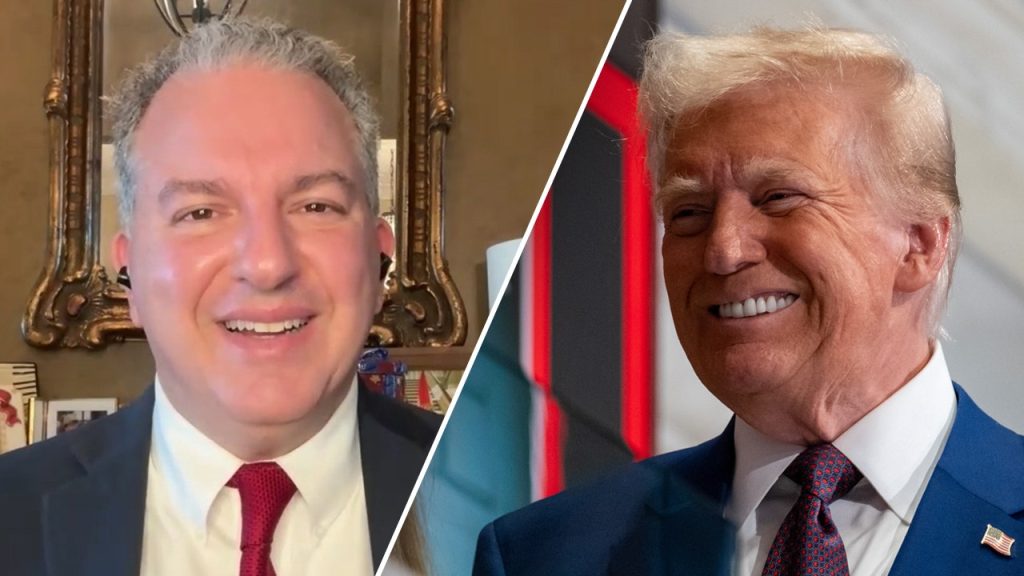Jimmy Patronis’s Congressional Bid: A Platform of Trumpism, Fiscal Conservatism, and "Common Sense"
Jimmy Patronis, Florida’s Chief Financial Officer, has embarked on a campaign for Florida’s 1st Congressional District, a seat vacated by Matt Gaetz. Encouraged by former President Donald Trump, Patronis has framed his candidacy as a direct extension of the Trumpian agenda, emphasizing a fight against "wokeness," a return to "common sense" governance, and a commitment to fiscal conservatism. With endorsements from Trump and key House Republican leaders, Patronis is positioning himself as a staunch ally of the former President and a champion of conservative principles.
Central to Patronis’s platform is the eradication of what he perceives as "wokeness" infiltrating American institutions. This resonates with a key theme of the Trump movement, which often criticizes progressive social and cultural values. Patronis argues that a lack of "common sense" plagues the nation’s governance, implying a disconnect between the political elite and the everyday concerns of ordinary Americans. This appeal to practicality aims to resonate with voters who feel alienated by what they perceive as overly complex or ideologically driven policymaking.
Patronis’s fiscal conservatism manifests in his staunch belief that citizens manage their finances more effectively than the federal government. This aligns with traditional Republican arguments for smaller government and lower taxes. He also advocates for exploring the adoption of gold and silver as legal tender in Florida, a move that reflects a distrust of fiat currency and a desire to return to what some consider more stable forms of monetary value. This position appeals to a segment of the population concerned about inflation and government spending. His proposal to study the feasibility of using gold and silver underscores his cautious approach, preferring data-driven decision-making to rash policy implementation.
Beyond fiscal matters, Patronis has expressed interest in aligning himself with the House Freedom Caucus, a group known for its conservative stances and occasional clashes with party leadership. While stopping short of a definitive commitment, his openness to joining the caucus suggests a willingness to embrace its core tenets of limited government, fiscal responsibility, and adherence to constitutional principles. This potential affiliation signals a more hardline conservative approach than some within the Republican party.
The endorsements Patronis has garnered from prominent figures like House Speaker Mike Johnson, Majority Leader Steve Scalise, and Majority Whip Tom Emmer demonstrate his growing acceptance within the party establishment. These endorsements, coupled with Trump’s backing, significantly bolster his credibility and provide a strong foundation for his campaign. This unified support from key Republican figures suggests a cohesive strategy to ensure a strong conservative voice represents Florida’s 1st District.
Patronis faces a special Republican primary next month, followed by the special election on April 1st. His focus on "common sense," fiscal conservatism, and his alignment with the Trump agenda suggests a strategy to appeal to the Republican base in this heavily conservative district. His campaign’s success will hinge on his ability to effectively communicate these messages and convince voters that he is the best candidate to represent their interests in Washington. The outcome of this special election will not only determine the next representative for Florida’s 1st District but also serve as a barometer for the continuing influence of Trumpism within the Republican party.
Patronis’s proposal regarding gold and silver requires a thorough study to assess its feasibility and potential impact on Florida’s economy. Such a study would need to consider various factors, including the logistical challenges of implementing a dual currency system, the potential volatility of gold and silver prices, and the legal ramifications of adopting alternative forms of legal tender. It would also need to examine the potential benefits, such as providing citizens with an alternative investment option and potentially hedging against inflation.
The endorsement from Trump, along with the support from House GOP leadership, provides significant momentum for Patronis’s campaign. Trump’s continued influence within the Republican party is evident in his ability to sway voters and rally support for his chosen candidates. This, coupled with the backing of key House leaders, positions Patronis as a strong contender in the special election.
Patronis’s emphasis on "common sense" and his criticism of "wokeness" reflect a broader trend within the Republican party. These themes resonate with a segment of the electorate that feels that traditional values and common sense approaches to governance are being eroded by progressive ideologies. By tapping into these sentiments, Patronis aims to connect with voters who are seeking a return to what they perceive as more traditional American values.
The special election for Florida’s 1st Congressional District will be a closely watched race, as it will provide insights into the current political landscape and the ongoing influence of Trumpism within the Republican party. The outcome will likely be influenced by a range of factors, including voter turnout, the effectiveness of campaign messaging, and the broader political climate leading up to the election.
Patronis’s political future hinges on the success of his campaign. A victory would propel him to the national stage and provide him with a platform to advance his conservative agenda. A loss, however, could potentially stall his political aspirations and raise questions about the viability of Trump-backed candidates in future elections. The stakes are high, and the outcome will have significant implications for both Patronis and the Republican party.
Patronis’s focus on fiscal responsibility and limited government aligns with core principles of the Republican party. His emphasis on these themes reflects a broader debate about the role of government in the economy and the appropriate level of government spending. His stance on these issues will likely appeal to fiscal conservatives and those who advocate for smaller government.

